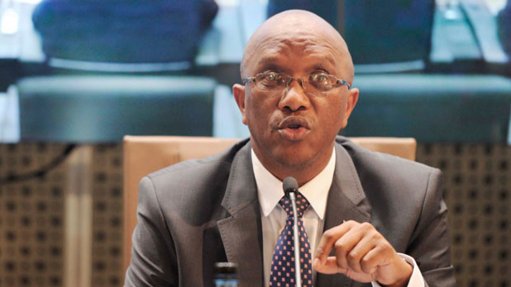
Auditor General Kimi Makwetu
Auditor-General Kimi Makwetu on Friday said his office would next week hand data over to law enforcement agencies to set in motion the investigation and, where needed, prosecution of those who unlawfully obtained Covid-19 relief funding and social grants.
Makwetu told Parliament's standing committee on the auditor-general this included information his staff had obtained on the scandal in which the new grant of R350, destined for those who have no other social assistance, went to some 30 000 people who do not qualify.
"We will be saying to them, we don't have the tools, use the tools that you have got at your disposal," he said.
Makwetu said he was turning to the Special Investigating Unit, the Hawks, the National Prosecuting Authority and the Asset Forfeiture Unit to delve further into evidence his office found of state funds spent to buffer the poor and unemployed during the pandemic being lost through fraud.
Where people received vast sums of money not destined for them, preservation orders should be obtained, he added.
He was briefings MPs after releasing a report this week that scrutinised the spending of R68-billion in special relief and funding for procuring personal protective equipment up to the beginning of July.
The report found shocking evidence that funds from the Temporary Employer/Employee Relief Scheme (TERS) launched by the Unemployment Insurance Fund in response to the coronavirus crisis flowed, to the tune of millions of rand, to prisoners, deceased people, recipients with invalid identity numbers and some who shared bank details with UIF employees.
In response, Labour Minister Thulas Nxesi placed the top management of the fund on precautionary suspension this week.
Makwetu on Friday stressed that to a large extent the wrongdoing was enabled by a failure to heed warnings his office had issued "in recent years" of inadequate controls on state spending.
He said key entities were ill-equipped to deal with the emergency steps the coronavirus pandemic demanded because their technology systems were weak and not integrated.